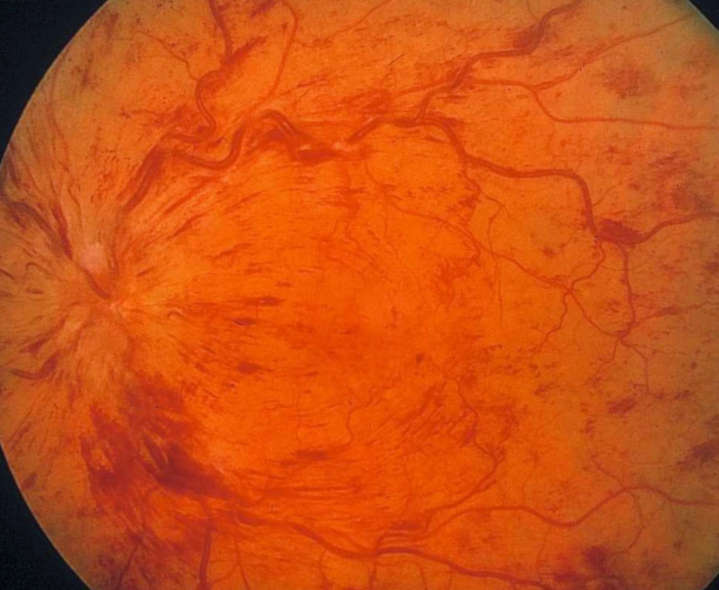Retinal venous occlusive disease
What is a retinal vein occlusion?
It is the result of a sudden decline in blood flow inside the venous system of the retina, which has an impact upon the retinal circulation. Stagnation of blood flow results in retinal hypoxia. The hypo oxygenation of the retina is responsible for more or less severe visual disturbances. Occlusion of the central retinal vein has more serious consequences than branch retinal vein occlusion, which concerns a smaller portion of the retina.

Among the predisposing factors, vascular risk factors (such as hypertension) are the most frequent. Increased blood level of certain lipids, diabetes mellitus, smoking, but also raised intra ocular pressure (glaucoma) are also common underlying causes. Finally, sleep apnoea syndrome can be associated with retinal vein occlusion.
Diagnosis of retinal vein occlusion
If retinal vein occlusion is suspected upon fundus examination, it is very useful to confirm the diagnosis by fluorescein angiography , which perfectly highlights the blood circulation in the retinal vessels and analyses. The optical coherence tomography (OCT) provides useful information to evaluate the macular oedema, which is a very common complication of venous occlusion.
The prognosis of central vein occlusion of the retina is very variable.
The prognosis is highly variable.
There is the possibility of complete or almost complete recovery in about 20% of cases or, conversely, a risk of major decline in vision.
What is the initial treatment?
Several treatment modalities can be offered. To treat the risk factors is essential to reduce the probability of relapse and damage to the fellow eye (about 10 to 15% of cases).
Anti-edematous treatments administered by intra-vitreous injection are now often prescribed to treat macular edema and can improve vision in the majority of cases; injection therapy should be started quickly in severe cases.
Laser treatment is indicated in some cases, mainly to avoid complications of ischemic forms or for the treatment of recurrent edema.
You can make an appointment with one of the Ophthalmologists of the department who provide specific care dedicated to this pathology:

Dr Alexandra MiereUniversity Lecturer – Staff Physician

Dr Francesca AmorosoStaff Physician

Dr Agnès Glacet-BernardStaff Physician Associated Professor at College of Medicine of Paris Hospitals

Dr Oudy SemounStaff Physician














